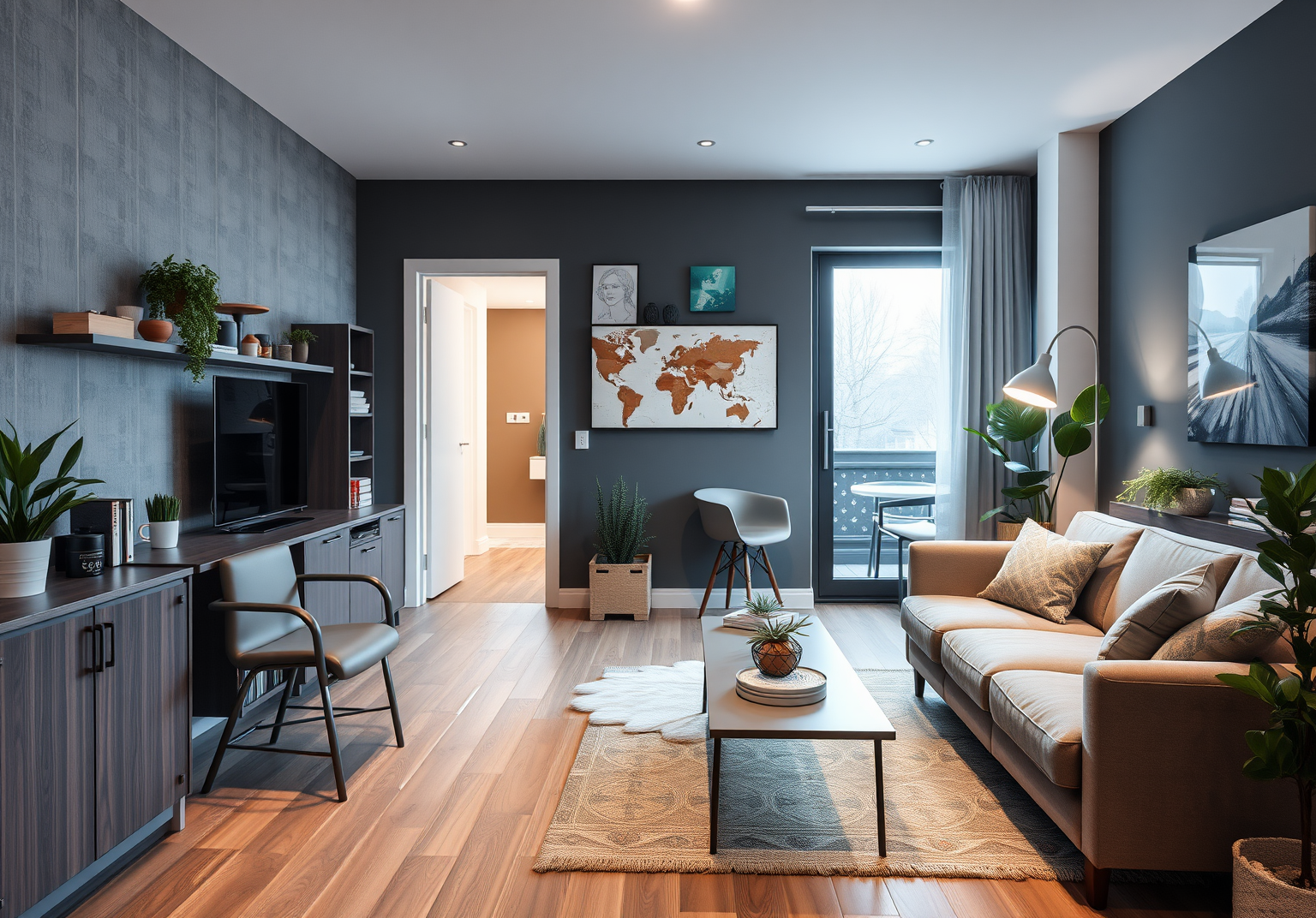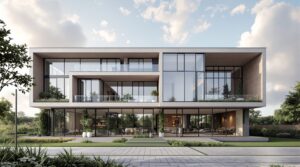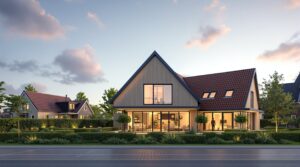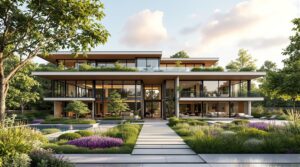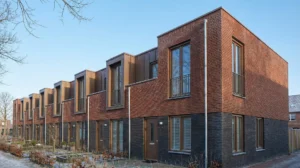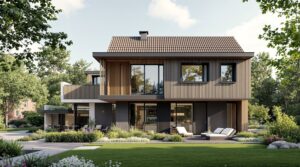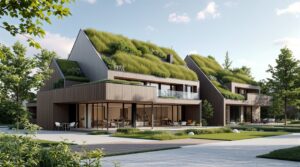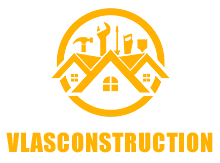Universal Design: Creating Inclusive Spaces Through Thoughtful Renovations
Introduction
The concept of Universal Design is gaining significant traction, particularly in the context of home renovations and extensions. Universal Design, also known as “Design for All” in Europe, focuses on creating spaces that are accessible and usable by everyone, regardless of age, size, ability, or disability. This approach is crucial for fostering inclusive and barrier-free living environments, which is especially relevant given the trends in multi-generational living and the need for aging in place solutions.
Basic Concepts
Universal Design is rooted in the principle of accessibility and inclusivity. It involves designing spaces that can be used by people of all ages and abilities, ensuring that homes are adaptable to the changing needs of their occupants. Here are some key concepts and benefits associated with Universal Design:
- Accessibility: Ensuring that all parts of the home are accessible to everyone, including those with disabilities.
- Adaptability: Designing spaces that can be easily modified as the needs of the occupants change.
- Sustainability: Creating homes that are not only accessible but also environmentally sustainable.
- Community Integration: Encouraging community living by designing homes that can accommodate people of all ages and abilities.
Understanding the Needs of Dutch Residents
When planning renovations or extensions in Dutch homes, it is essential to understand the unique needs and preferences of the residents. Here are some steps to consider:
Client Interviews
Conduct thorough interviews with the clients to understand their specific needs, whether they have young children, care for aging parents, or are approaching retirement themselves. This helps in identifying the necessary Universal Design features to incorporate into the project.
Assessing Current and Future Needs
Consider the current family members and their needs, as well as the potential future needs. For example, if the household includes young children, features like stable and slip-resistant surfaces, wide interior doors, and easy-to-use door handles are crucial. For aging parents, curbless showers, grip handles in showers, and lower counter heights may be necessary.
Practical Universal Design Features for Dutch Homes
Here are some common Universal Design features that can be incorporated into Dutch homes:
Bathroom Modifications
- Curbless or No Threshold Showers: These showers eliminate the need for stepping over a threshold, making them accessible for people with mobility issues.
- Grip Handles: Installing grip handles in showers and tubs provides additional support and safety.
- Accessible Fixtures: Using single-handle mixer taps and raising or lowering toilets to comfortable heights can significantly improve accessibility.
Kitchen Modifications
- Pullout Shelving: Incorporating pullout shelving and microwave drawers makes kitchen tasks easier for people of all abilities.
- Task Lighting: Good light sources, especially task lighting, can enhance visibility and safety in the kitchen.
- Adjustable Counters: Shallower depth or lower height counters can be beneficial for residents with mobility or reach limitations.
General Home Modifications
- Wide Doors and Hallways: Ensuring wide interior doors (at least 3’0″) and hallways with 60″ × 60″ turning spaces facilitates easy movement.
- Slip-Resistant Surfaces: Using stable, firm, and slip-resistant surfaces throughout the home reduces the risk of falls.
- Easy-to-Use Door Handles: Lever handles or automatic door opening devices make it easier for everyone to navigate the home.
Community-Led and Sustainable Approaches
Community-Led Housing
Projects like the Space-S social housing estate in Eindhoven demonstrate the success of community-led housing initiatives. Here, residents were actively involved in the design and development process, ensuring that the housing met the diverse needs of its occupants. This approach fosters a sense of community and resident empowerment.
Modular and Sustainable Construction
Modular construction, as seen in projects like Moos Euterpe near Rotterdam, offers a sustainable and efficient solution to housing needs. These homes are designed with flexibility and community interaction in mind, using materials like recycled concrete and cross-laminated timber to minimize environmental impact. The modular design allows for easy relocation and reconfiguration, aligning with the principles of Universal Design.
Municipal Support and Regulations
In the Netherlands, municipalities play a significant role in supporting home modifications. Here are some key points to consider:
Municipal Assistance
The municipality can assist with certain modifications, such as making homes wheelchair-accessible, installing stair lifts, or modifying bathrooms and kitchens. Residents can request these modifications through the municipality, which will work together to find a suitable solution.
Permission from Homeowners
If you are a tenant, you do not need permission from the homeowner to make modifications, although the homeowner’s reaction to the plans should be considered. For homeowners, it is essential to arrange and pay for the modifications themselves.
Declaration of Urgency
In cases where modifications are not feasible, residents may be eligible for a declaration of urgency for social housing, which prioritizes their need for a more suitable home.
Practical Tips for Renovations
Here are some practical tips for incorporating Universal Design into your home renovations in the Netherlands:
- Conduct a Thorough Needs Assessment:
- Understand the current and future needs of all household members.
- Consider the age, ability, and mobility of the occupants.
- Choose Accessible Materials and Fixtures:
- Select materials and fixtures that are easy to use and maintain.
- Ensure that all surfaces are stable, firm, and slip-resistant.
- Design for Flexibility:
- Incorporate features that can be easily modified as needs change.
- Use modular designs that allow for reconfiguration.
- Seek Professional Advice:
- Consult with architects and designers who specialize in Universal Design.
- Ensure that all modifications comply with local regulations and accessibility standards.
- Involve the Community:
- Engage with community members in the design process to ensure that the space meets diverse needs.
- Foster a sense of community and resident empowerment through inclusive design practices.
Conclusion
Creating inclusive and barrier-free living spaces through Universal Design is a critical aspect of home renovations and extensions in the Netherlands. By understanding the needs of residents, incorporating practical Universal Design features, and leveraging community-led and sustainable approaches, homeowners can ensure that their homes are accessible, adaptable, and sustainable for all occupants. Whether you are renovating a bathroom, kitchen, or entire home, the principles of Universal Design can help you create a space that is truly inclusive and supportive of all ages and abilities.
Table: Common Universal Design Features for Dutch Homes
| Feature | Description |
|---|---|
| Curbless Showers | Eliminate the need for stepping over a threshold |
| Grip Handles | Provide additional support and safety in showers and tubs |
| Wide Doors and Hallways | Facilitate easy movement with 3’0″ doors and 60″ × 60″ turning spaces |
| Slip-Resistant Surfaces | Reduce the risk of falls with stable, firm surfaces |
| Lever Handles | Make doors easier to use for everyone |
| Pullout Shelving | Enhance kitchen accessibility with easy-to-reach storage |
| Task Lighting | Improve visibility and safety in kitchens and other areas |
| Adjustable Counters | Provide shallower or lower counter heights for better accessibility |
Table: Municipal Support for Home Modifications in the Netherlands
| Type of Modification | Description |
|---|---|
| Wheelchair Accessibility | Making homes accessible for people with mobility issues |
| Stair Lift Installation | Assisting with mobility within multi-story homes |
| Bathroom and Kitchen Modifications | Modifying these areas to improve accessibility |
| Declaration of Urgency | Prioritizing the need for a more suitable home when modifications are not feasible |

